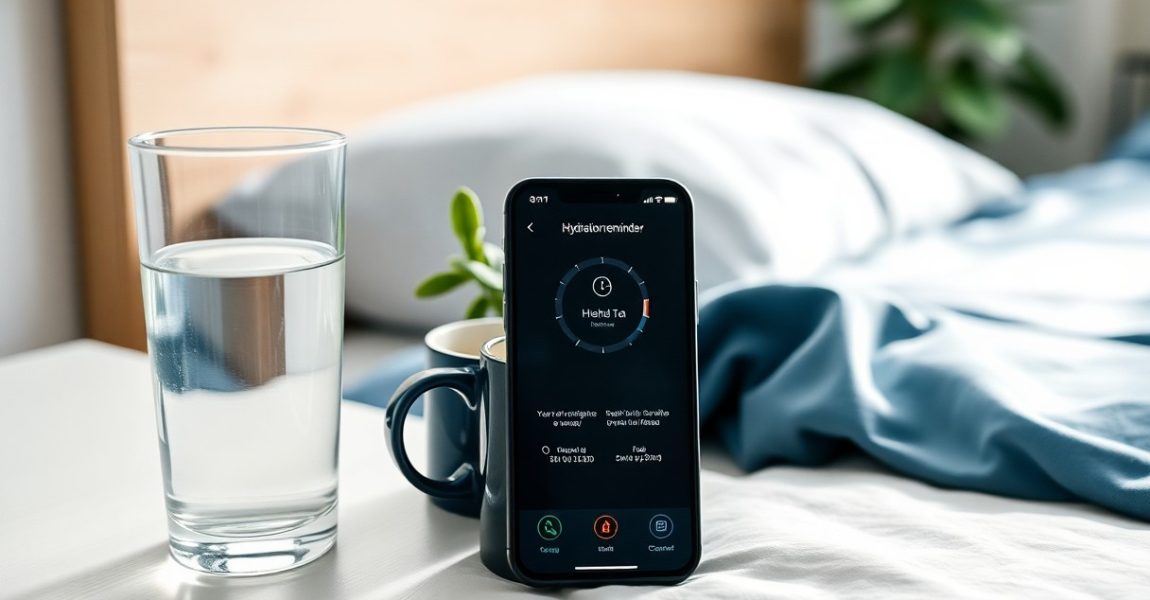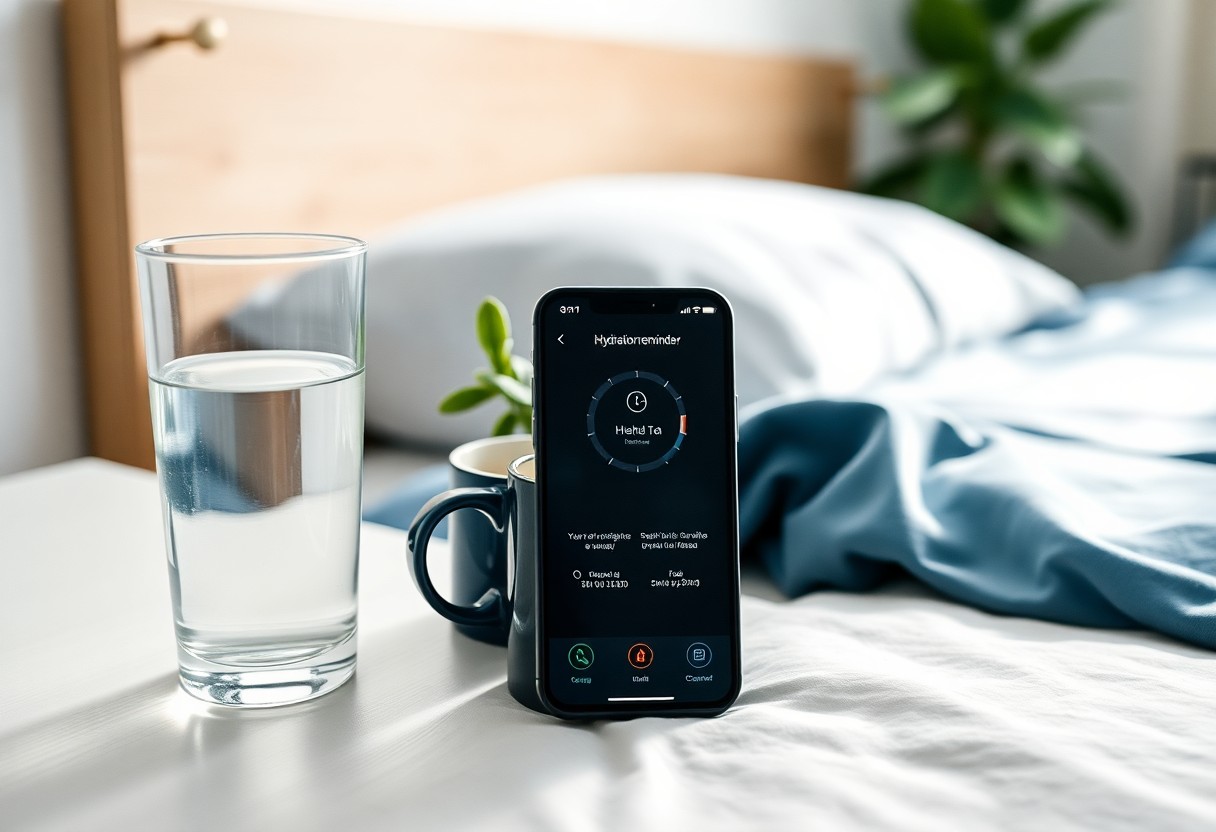
There’s a powerful connection between hydration and sleep quality that you might not be aware of. By ensuring you stay adequately hydrated, you can significantly enhance your ability to fall asleep and stay asleep through the night. In this post, you’ll discover five effective ways that drinking water can work wonders for your sleep, helping you wake up feeling refreshed and energized. Prioritizing water intake can lead to a better mood, improved mental clarity, and an overall healthier lifestyle. Dive in to find out how to harness the benefits of water for your sleep. Refresh your nights with our 250ml mineral water—packed with natural minerals that support hydration, relaxation, and deeper, more restful sleep.
Contents
- 1 The Biological Connection: Hydration’s Role in Sleep Regulation
- 2 Timing Matters: When to Hydrate for Optimal Sleep
- 3 Enhancing Sleep Environment: The Influence of Humidity Levels
- 4 Beyond Drinking: Foods with High Water Content that Promote Sleep
- 5 The Mindful Ritual: Incorporating Water into Your Nighttime Routine
- 6 To Wrap Up
- 7 FAQ
- 7.0.1 Q: How does staying hydrated impact my sleep quality?
- 7.0.2 Q: Can drinking water before bed be counterproductive to sleep?
- 7.0.3 Q: Are there specific types of water that can enhance sleep quality?
- 7.0.4 Q: What role does temperature play in sleeping with water?
- 7.0.5 Q: Can water help with specific sleep issues like insomnia?
Key Takeaways:
- Staying hydrated throughout the day can prevent nighttime disruptions and enhance overall sleep quality.
- Adequate water intake aids in regulating body temperature, promoting a more comfortable sleep environment.
- Herbal teas and warm water before bedtime can relax the body and mind, setting the stage for better sleep.
- Water helps reduce the risk of nighttime leg cramps and discomfort, allowing for uninterrupted rest.
- Creating a hydration routine can help signal the body that it’s nearing bedtime, contributing to improved sleep hygiene.

The Biological Connection: Hydration’s Role in Sleep Regulation
How Dehydration Disrupts Sleep Patterns
When your body is dehydrated, you may experience discomfort that directly impacts your ability to fall asleep and stay asleep. Common symptoms of dehydration include a dry mouth, throat irritation, and increased fatigue, all of which can cause restlessness during the night. Studies have shown that insufficient levels of hydration can lead to longer periods of wakefulness and difficulty transitioning through sleep cycles, significantly decreasing your total sleep time. By ensuring you maintain adequate hydration throughout the day, you can help mitigate these disruptions and support a more restful night. Enjoy the convenience of a small bottled mineral water—your perfect bedtime companion to stay hydrated, relax your body, and naturally improve your sleep quality.
Moreover, dehydration can exacerbate other conditions that impair sleep. For instance, chronic dehydration has been linked to increased levels of cortisol, the stress hormone, which can create a vicious cycle of stress and sleeplessness. Inadequate hydration can affect your body temperature regulation, too, leading to discomfort while trying to fall asleep. This interplay between hydration and your body’s physiological responses illustrates just how important drinking enough water is for achieving the quality sleep you desire.
The Science of Hydration and Melatonin Production
Melatonin, often referred to as the “sleep hormone,” plays an important role in regulating your sleep-wake cycles. Hydration directly influences the secretion of melatonin in your body, as adequate fluid levels support the balance of hormones and neurotransmitters. Research indicates that even mild dehydration can alter the production of melatonin, leading to sleep complications. When you’re well-hydrated, your body is more capable of producing melatonin in optimal amounts, ensuring a smoother transition into sleep.
Your body needs sufficient hydration to support the optimal functioning of organs that synthesize hormones. Those who drink small amounts of water throughout the day may find their melatonin levels dip when it’s time for bed, making it harder to drift off. Specifically, having an adequate hydration routine can lead to a more stable supply of melatonin, enhancing the natural induction of sleep and increasing the overall quality of your rest.
Timing Matters: When to Hydrate for Optimal Sleep
The Effects of Evening Water Intake
Drinking too much water close to bedtime can lead to frequent trips to the bathroom during the night, disrupting your sleep cycle. The body processes fluids differently at night compared to the day, so while staying hydrated is necessary, timing your intake after dinner is key. A good rule of thumb is to taper off your fluid consumption at least two hours before sleep. This allows your body sufficient time to absorb and process the water, minimizing the risk of interruptions to your slumber.
On the other hand, if you find yourself becoming thirsty in the evening, opt for small sips rather than large quantities. This approach helps to quench your thirst without overloading your bladder. By striking this balance, you can ensure that your water intake promotes overall health without compromising the restorative benefits of deep sleep.
Morning Hydration and Its Impact on Sleep Quality
Starting your day with a glass of water not only kickstarts your metabolism but also plays a vital role in regulating sleep quality later on. Hydrating in the morning helps replenish the fluids lost during the night, setting a solid foundation for your body’s hydration needs throughout the day. Studies indicate that maintaining proper hydration levels during the day can lead to a significant reduction in sleep disturbances, providing a smoother transition into a restful night.
By prioritizing morning hydration, you boost not only your physical vitality but also your cognitive capabilities. Being adequately hydrated could lead to improved mood and mental clarity, which in turn affects your overall sleep quality. Think of it as a cycle where the more hydrated you are in the morning, the better you’ll likely sleep at night.
Morning hydration has profound benefits beyond enhancing daily activities. It promotes optimal blood circulation and nutrient transport, which supports various bodily functions, including sleep regulation. Additionally, well-hydrated individuals may experience decreased symptoms of anxiety and stress, potential disruptors of sleep. Therefore, making sure to drink water right after you wake up sets the stage for a more restful and restorative sleep cycle come nightfall.
Enhancing Sleep Environment: The Influence of Humidity Levels
A well-maintained humidity level in your bedroom can significantly impact the quality of your sleep. Ideally, your sleeping environment should have a humidity level between *30% and 50%*, which helps to prevent dryness in the air, easing your breathing and reducing the likelihood of skin irritation or respiratory issues during the night. Maintaining optimal humidity not only aids in your comfort but also boosts the effectiveness of your sleep hygiene practices. A consistent, comfortable humidity level creates an atmosphere conducive to deep, restorative sleep.
The Role of Humidifiers in Restful Sleep
Humidifiers can serve as excellent tools to enhance the moisture levels in your room, directly contributing to more restful sleep. Using a humidifier before bedtime can combat the dryness that often accompanies air conditioning or heating systems, making it easier for you to breathe. When the air is too dry, issues like chapped lips, nasal congestion, and irritated skin can arise, ultimately disrupting your sleep. With models ranging from portable to whole-home units, you can find one that suits your needs and sleeping environment effectively.
Natural Ways to Control Room Humidity
If you prefer a more natural approach, there are several methods to manage humidity levels in your bedroom without the use of devices. Some effective strategies include placing bowls of water near heat sources, such as radiators, which will evaporate and add moisture to the air over time. Additionally, introducing indoor plants like English ivy or Boston ferns can help naturally humidify your space while also improving air quality. You might also consider taking warm showers right before bed, as the steam can contribute to increased humidity, enhancing your sleep environment.
Utilizing these natural methods can create a more comfortable sleep environment tailored to your preferences. For instance, *strategically placing plants* that thrive in humid conditions not only elevates the aesthetics of your room but also works continuously to help maintain that ideal humidity range. Highlighting these elements can show how small adjustments lead to significant improvements in your overall comfort and sleep quality, making for a more restful night. Pay attention to these slight modifications, and you’ll likely notice a difference in how quickly you fall asleep and how restful your slumber can be.
Beyond Drinking: Foods with High Water Content that Promote Sleep
Sleep-Inducing Foods: The Water Factor
The foods you consume can significantly impact your hydration levels and, consequently, your sleep quality. Certain fruits and vegetables, known for their high water content, not only help keep you hydrated but also contain imperative nutrients that encourage restful sleep. For instance, cucumbers and watermelon contain about 95% water and are rich in magnesium, which is known to support relaxation. Similarly, strawberries and cantaloupes provide hydration while delivering antioxidants that contribute to overall health. These foods can become imperative parts of your diet if you’re looking to boost your sleep quality through better hydration.
Incorporating Hydrating Snacks into Your Evening Routine
Integrating hydrating snacks into your evening routine can be a game changer for your sleep quality. Opting for a light snack before bedtime can aid in maintaining optimal hydration levels without causing discomfort. Consider having a small bowl of yogurt topped with slices of juicy fruit like peaches or berries which not only sweeten your evening but intermingle taste and hydration seamlessly. Additionally, a handful of baby carrots with a hummus dip can serve as a satisfying, crunchy snack that’s equally hydrating.
Focus on snacks that combine hydration and nutrients; think lightly steamed broccoli or a fresh salad with cherry tomatoes and bell peppers, all contributing to your daily water intake. Combining these foods allows for a gradual increase in hydration levels, setting the stage for a deeper, more restful sleep. Making these simple yet impactful snacks a regular part of your nighttime routine can help prepare your body for a restful night and set the tone for improved sleep quality.
The Mindful Ritual: Incorporating Water into Your Nighttime Routine
Creating a Calm Hydration Ritual Before Bed
Transforming your hydration habits into a calming bedtime ritual can set the stage for better sleep quality. Consider filling a glass with filtered water to sip on while you unwind after a long day. If plain water doesn’t entice you, take a moment to prepare a warm cup of herbal tea as a treat for yourself. The simple act of boiling water and steeping a tea bag can serve as a powerful signal to your body that it’s time to transition to rest. Aim to do this ritual about 30 minutes before you intend to sleep, allowing your body to relax and your mind to quiet down. Avoid heavy drinking right before bed to sidestep nocturnal trips to the bathroom, which can disrupt your slumber.
The Benefits of Herbal Teas and Infused Waters
Herbal teas and infused waters not only hydrate but also provide numerous natural compounds that can promote relaxation and enhance sleep. Ingredients like chamomile, valerian root, and lavender have been shown to have sleep-promoting properties, helping to soothe your nervous system as you wind down. Infusing water with fruits like cherries, oranges, or berries can create a refreshing blend that not only tastes delightful but also offers additional vitamins and antioxidants. Experimenting with flavors can make hydration enjoyable while still serving the dual purpose of preparing your body for a restful night.
Strong anecdotal evidence supports the effectiveness of herbal teas when it comes to sleep. For instance, studies suggest that chamomile tea can increase glycine levels in your body, serving as a natural sedative that helps manage anxiety and induce sleepiness. Similarly, the calming aroma of lavender has been shown to lower heart rate and blood pressure, contributing to overall relaxation. By incorporating these soothing options into your nightly routine, you’re not just hydrating but also engaging in a sensory experience that nurtures a tranquil environment for sleep.
To Wrap Up
With this in mind, incorporating the right amount of water into your daily routine can significantly enhance your sleep quality. By properly hydrating yourself, you can improve various physiological functions, from regulating body temperature to facilitating the detoxification process overnight. Ensuring you drink the recommended amount of water can help mitigate disturbances like dry throat and nighttime awakenings, allowing you to achieve deeper, more restorative sleep cycles.
Additionally, adopting habits such as sipping water at intervals throughout the day rather than all at once can further maximize its sleep-enhancing benefits. Integrating herbal teas known for their calming effects into your evening routine can also be a beneficial strategy. As you make these changes, you may find that a well-hydrated body not only promotes better sleep but also enhances your overall well-being, leaving you refreshed and ready to tackle the day ahead.
FAQ
Q: How does staying hydrated impact my sleep quality?
A: Proper hydration is important for overall health, including sleep quality. When you’re dehydrated, it can interfere with your body’s ability to regulate temperature and result in discomfort during the night. Drinking an adequate amount of water throughout the day can help ensure that your body is well-hydrated, potentially leading to deeper and more restful sleep.
Q: Can drinking water before bed be counterproductive to sleep?
A: Drinking water in moderation before bed can be beneficial, but it’s important to strike a balance. While staying hydrated is necessary, consuming large amounts of water right before bedtime can lead to frequent trips to the bathroom, disrupting your sleep. Aim to hydrate well throughout the day and limit liquid intake an hour or so before you go to sleep for better rest.
Q: Are there specific types of water that can enhance sleep quality?
A: While plain water is effective for hydration, herbal teas such as chamomile, valerian root, or passionflower tea can provide additional benefits due to their natural calming properties. These herbal options are caffeine-free and can help relax the mind and body, promoting a more peaceful night’s sleep.
Q: What role does temperature play in sleeping with water?
A: The temperature of your body can significantly affect sleep quality. Drinking cool or room temperature water can help lower your body temperature, which promotes better sleep. Conversely, if you drink hot water or herbal teas, that warmth can relax your muscles and prepare your body for rest. Choose the temperature of your beverages based on what feels most comfortable for you before sleeping.
Q: Can water help with specific sleep issues like insomnia?
A: While water itself may not directly resolve insomnia, maintaining proper hydration can alleviate discomforts that impact sleep, such as dry mouth or nasal passages. Additionally, certain hydration levels can affect your body’s stress response. Drinking enough water may help reduce anxiety levels, which can in turn foster better sleep. For persistent sleep issues, however, it’s best to consult a healthcare professional for tailored advice.
- August 11, 2025
- Benefits
